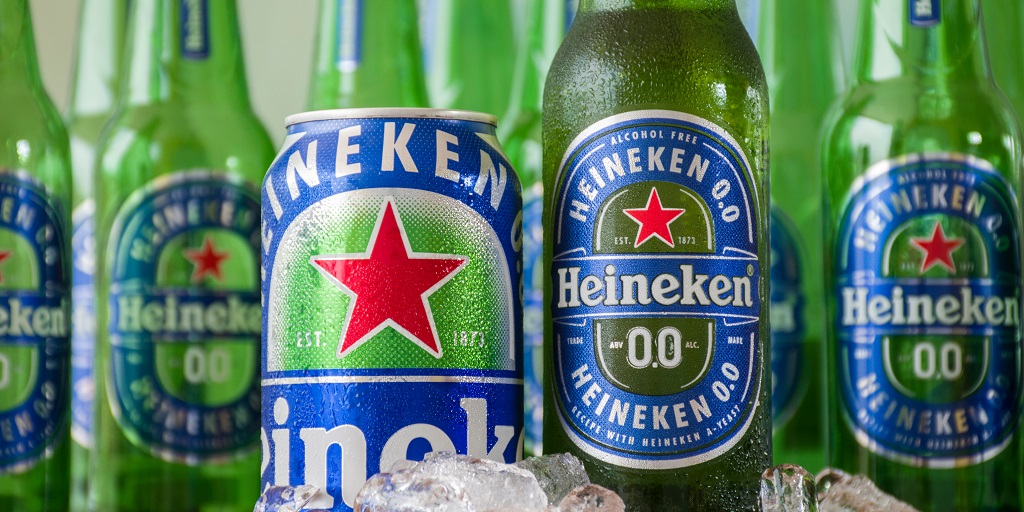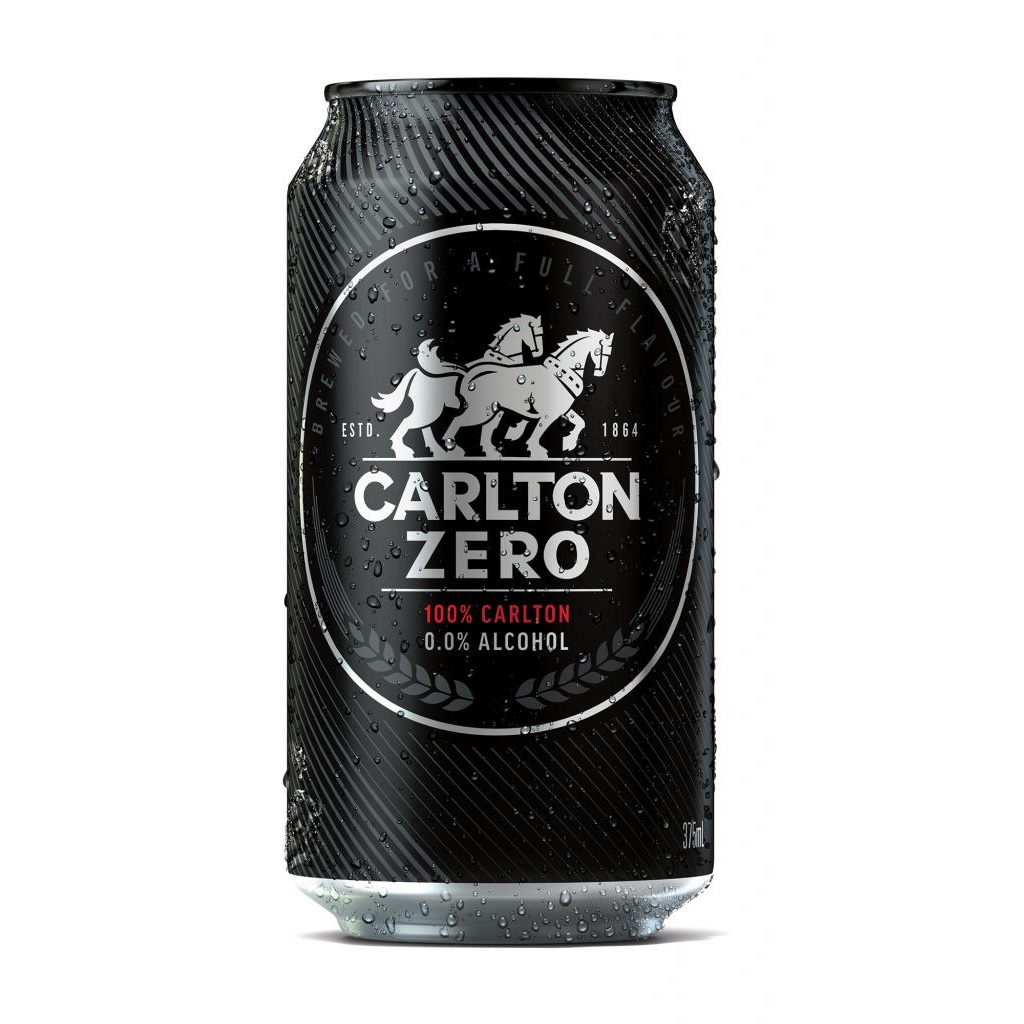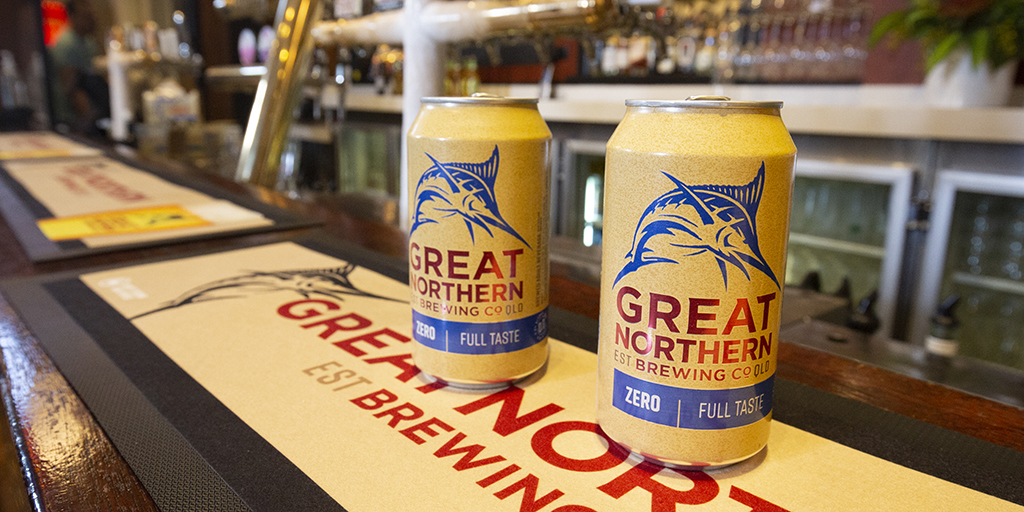
The challenges of marketing zero alcohol
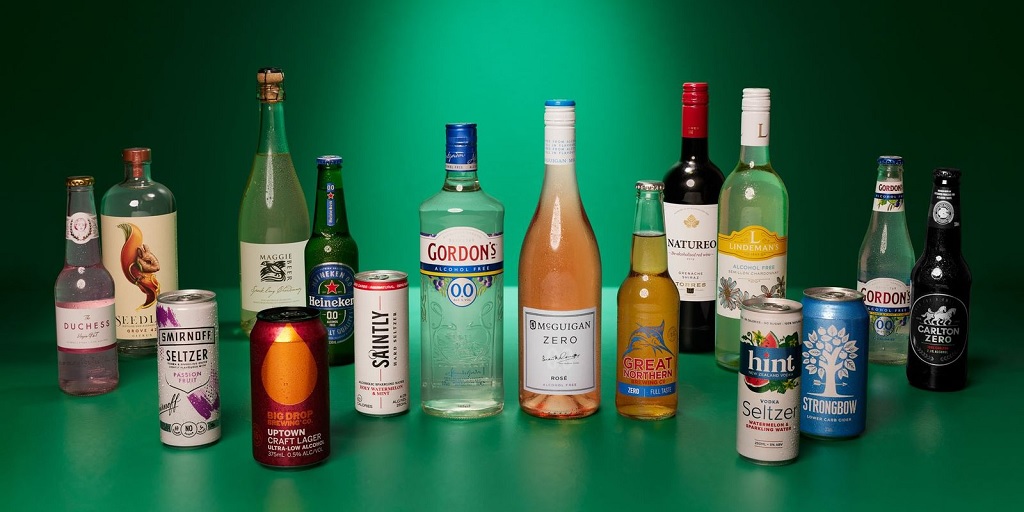
Zero alcohol beers have been making headlines in recent months with new brands launched seemingly every day.
But while some producers see it as purely a new category of the market, without the excise implications and retail restrictions of alcohol, others are critiquing the advent of non-alcoholic options as “grooming” minors or as “gateway” options which lead to excessive drinking.
Clinton Schultz founded no-alcohol brand Sobah Beverages in 2017 and has dedicated ethical and community-minded messages surrounding the brand’s non-alcoholic beer.
“More people should be more open about this. For some people it’s just an easy new sector of the market, and that’s when ethics fall away,” he said.
The issues arise from not only the marketing of no-alcohol beer – and whether it’s a brand extension of an existing alcohol beer or a new brand altogether – but also its treatment and placement within supermarkets and bottleshops.
Should zero alcohol be sold in supermarkets?
Currently, many organisations and retailers including supermarkets are grappling internally with how to deal with the positioning and marketing of no-alcohol options.
At Woolworths, non-alcoholic products are kept separate from confectionary and toy aisles and are ranged next to mixers which are more adult-orientated.
“We take our role as a responsible retailer seriously,” a Woolworths spokesperson told Brews News.
“It’s worth noting we’ve sold non-alcoholic wine and beers for many decades without issue.
“While there is currently no legislation in Australia preventing the sale of non-alcoholic products to customers, we’ll continue to have discussions with stakeholders and industry groups to ensure we’re operating at a high standard of responsible service.”
Although Woolworths did not respond in relation to whether they ID for no-alcohol beers, they said they are in full accordance with the ABAC code, which considers ‘masterbranded’ zero alcohol beverages as brand extensions of the alcohol product.
Similarly, Coles Supermarkets, which also owns Vintage Cellars and First Choice bottleshops, was keen to reiterate its stance as a responsible retailer but did not further elaborate on its stance following more detailed questioning from Brews News.
“Coles takes the Responsible Service of Alcohol very seriously and we abide by all the regulations and legislation in relation to the sale of alcohol,” a spokesperson said in answer to where no-alcohol beer was placed and whether it was company policy to ID customers.
The IGA meanwhile says that as stores are owned in a franchise model, it is up to the owner of each store to decide on the way they sell non-alcoholic products and whether they ID for them.
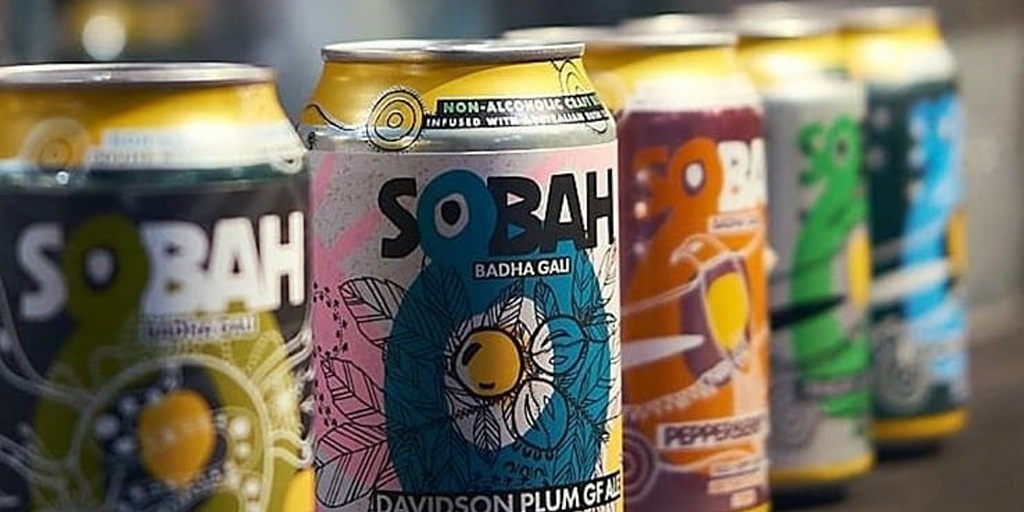
Clinton Schultz at Sobah, whose Pepperberry IPA is listed in 180 Coles stores, said that retailers should be as responsible and take all these considerations into account.
“To be honest, I don’t personally have a problem with [alcohol in supermarkets] if it’s done in an ethical manner,” he said.
“It’s more from a psychological perspective, but the argument that having these products visible is going to encourage people to form bad habits is a bit stretched. When you look at the UK, it’s sold in the supermarkets where every kid goes in with their parents, and not every single person in the UK is a raging alcoholic.
“But we need to be smart about how we’re exposed to these brands and how they could lead to association with alcoholic brands.”
The Endeavour Group, formerly owned by Woolworths before its demerger and relisting earlier this year, takes a slightly different stance.
At its BWS and Dan Murphy’s bottleshops, you have to be 18 years of age to buy zero alcohol and customers are ID’d if they look under the age of 25.
Endeavour’s stance is to consider products such as non-alcoholic wine, beer, RTD and spirits as “alcohol-like” as they are often similar in type, name, brand and or packaging to a product containing alcohol.
Zero alcohol beer brand Heaps Normal is available at the same retail stores as alcoholic products.
“At some point in the future, there may be a reason to include supermarkets in our distribution channels. We don’t think that time has come yet,” Heaps Normal co-founder Andy Miller said.
In respect to whether people should be ID’d for zero alcohol beers though, there is nuance.
“Regulators love absolutes, but it doesn’t reflect the world we live in or the way reasonable people make decisions,” he said.
“We’ve made a decision based on our own values not to promote Heaps Normal to minors. However, the decision whether to serve a non-alcoholic beer or soft drink to someone should be at the discretion of venues and responsible operators.
“It’s all about the context. There are plenty of examples where this kind of discretion could be used to instil responsible drinking choices and behaviours.”
Leveraging masterbrands
Criticism of no-alcohol beer often falls at the feet of the major brewers who are using their existing ‘masterbrands’ to leverage their zero-alcohol versions.
Heineken 0.0 and Carlton Zero have been at the forefront of these complaints as early entrants to the market, often appearing in complaints to ABAC.
To existing brands it might make sense to leverage the brand power of their ‘masterbrand’ to skip the necessary brand and recognition building required for an entirely new brand. But this comes with its own difficulties.
Brands which have started out as solely zero-alcohol, or are offshoots of existing breweries that have set up siloed zero-alcohol products from their standard alcoholic brands, face an uphill struggle with so many entrants to the market and a finite demand.
“When you have a Heineken 0.0 on the shelves and it looks exactly the same as an alcoholic beer, that can be misleading and problematic,” argued Sobah’s Schultz.
“The difference in craft is that a lot of the time they don’t look like mainstream beers, alcoholic or not. We commonly get people say they don’t know Sobah beverages are beer.”
As might be expected, Andy Miller at Heaps Normal, agrees.
“A brand with an existing association to alcohol is a totally different proposition to one that only produces non-alcoholic beverages,” he said.
“A dedicated non-alc brand like Heaps Normal doesn’t benefit from the sale of alcohol, so it would be unreasonable to suggest there is any incentive for companies like ours to be grooming consumers for alcohol consumption.
“There’s an important difference between an alcohol brand that produces a non-alcoholic product and a brand that only produces alcohol-free products.”
Ethical concerns
All alcohol producers are beholden to an interlinking set of rules and regulations from various bodies, but the applicability of these rules to zero alcohol isn’t consistent, as alcohol advertising watchdog ABAC itself has pointed out.
“It should be expected that all businesses market their products in a responsible manner,” said Heaps Normal’s Andy Miller.
“We take all reasonable steps to ensure that our product is exactly what we say it is.
“This includes providing an accurate description of our product, that it’s a beer and it’s non-alcoholic, and guaranteeing the contents of the can match what’s detailed on the label.”
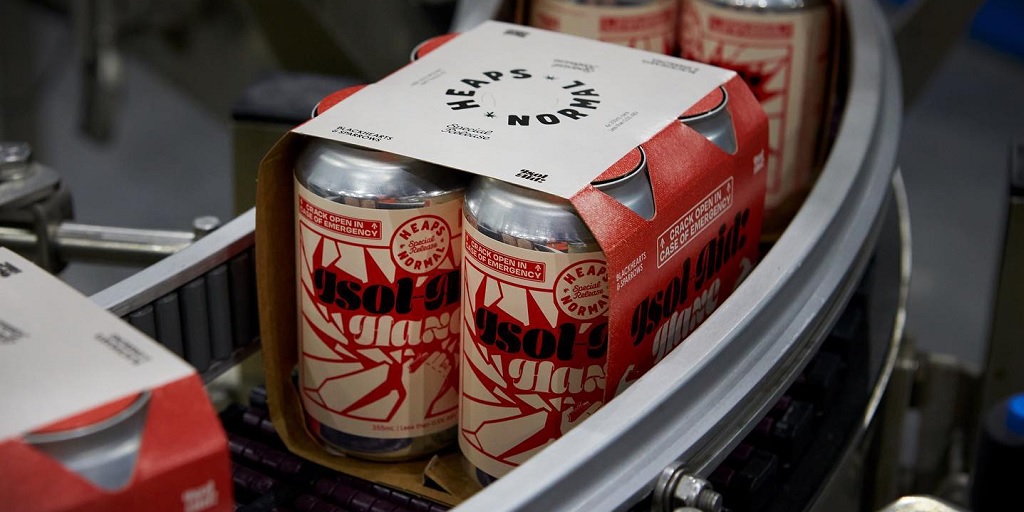
There are plans in the works to mandate that alcohol producers include nutrition panels including energy levels, but this is mandatory for zero alcohol beers, said Miller.
“If anything, the contents of non-alcoholic beverages are currently subject to higher scrutiny on their contents than their alcoholic cousins – [for example] requiring a nutritional panel.”
However, other groups think that there needs to be more discussion and consideration about the impacts of zero alcohol beers in the wider community.
Shanna Whan, founder of charitable organisation Sober in the Country said that there is a balance to be made, as long as there is clear and transparent information for consumers.
“I’m a staunch advocate there’s no ‘’one size for all’’ and I’m neither anti-alcohol nor anti-alcohol-free beer, wine, and spirits,” she said.
“I see a tremendous fit for zero-alc options in our backyard in the bush, and the many benefits of choice and inclusion they bring. As it currently stands, although the shift has started, anyone who lives out here and goes to rural events is basically resigned to the fact that their options will likely include booze, booze, more booze, or a token bottle of water or sugary soft drinks.”
Whan herself identifies as a recovered alcoholic, meaning she doesn’t miss, want or need alcohol, but also maintains ‘vigilant standards’ for her own health, after experiencing a near-fatal relapse in 2015 which she says was triggered by non alcoholic versions of alcoholic beverages.
“What I understand now is that someone like me was never in it for the taste. I wanted the effect. I wanted to get blind, rotten, rolling drunk – because that’s what alcohol addiction is,” she said.
‘’I simply never even thought it through … how using an imitation option could play out. And now I know, first-hand, that so many are similarly uninformed.’’
Whan said she was urging people in the community to take into consideration the use cases of zero alcohol options, and never presume or market that they are ‘safe’ for all.
“It’s also deeply concerning to see people marketing them as a great way to cut back on alcohol. For some it absolutely can be. For others – it’s a disaster. And that distinction MUST be made. Because lives literally can depend on it.”
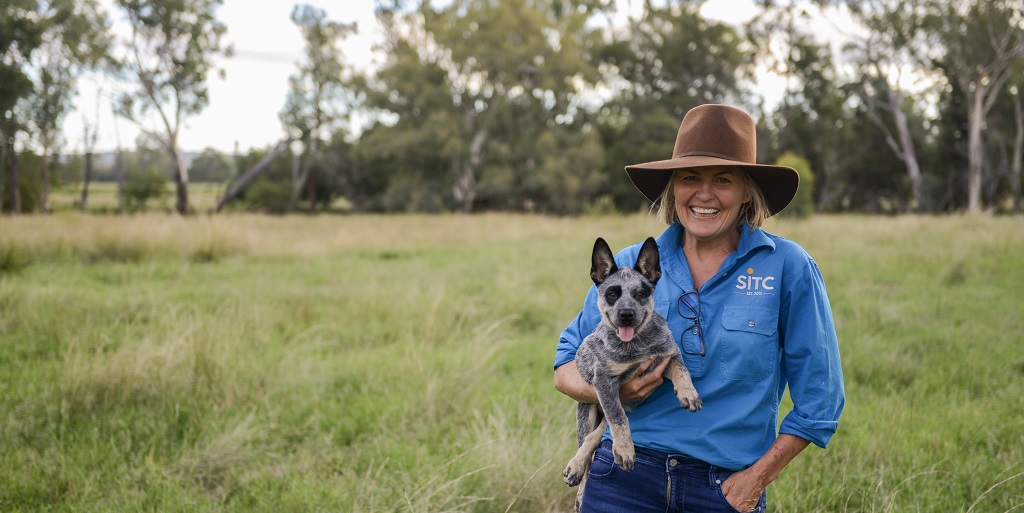
Shanna Whan, founder of charitable organisation Sober in the Country
This is a particularly challenging area of no-alcohol marketing, in which it is suggested that zero alcohol is the healthier, more mindful option. But this is a particular danger, said Whan.
“There’s an unquestionably real and present danger to some within our most vulnerable sobriety community, and I have a heartfelt message and request for influencers, manufacturers, and stockists: if you’re going to constantly use the word ‘mindful’ in your marketing – then please put your money where your mouth is, and be truly mindful.
“You can do that as simply as by adding a sentence on your platforms such as: ‘Please note: drinks that replicate the taste and smell of alcohol and can be triggering for some in or recovering from addiction’.
“I am the first to say that nobody is responsible for the choice of an individual except the individual – but the simple fact is people can only ever make informed choices based from a position of full disclosure and truth.
“Many within the industry have already pointed out that the ‘’at-risk’’ portion of the sobriety sector is small – if we’re such a small group, then why is it such a big deal to be up-front?”
Clinton Schultz of Sobah Beverages on the question of where zero-alcohol brands should be sold said that as someone who has chosen not to drink, he would prefer not to be forced to buy his alcohol-free options from bottleshops.
“I fully support Shanna and a lot of the stuff they promote and we’ve put out statements saying that that’s our standpoint. We know it won’t be for everyone that is choosing not to drink for whatever reason.
“I’m one of those people that isn’t triggered by alcohol but I’m choosing not to drink and I love the taste of beer. But I don’t want to necessarily go into a BWS or a Dan Murphy’s, I want to be able to buy my non-alcoholic drinks but not next to alcohol.
“There will be people on the other side of the spectrum, that don’t want to see them in the supermarket.
“So we need to be understanding of the triggers and needs of diff peoples, and how we ethically work to meet those needs as much as possible.”
Andy Miller at Heaps Normal agreed that it was necessary for brands to consider the use cases of zero alcohol beer.
“Our product is labelled as a beer. It’s also clearly labelled as non-alcoholic. We see it as our role to ensure that people considering our product are appropriately well informed about what they are choosing to purchase and/or consume.
“Every individual has their own set of considerations in determining whether a non-alcoholic beer is right for them and this is no different for those in recovery.
“As a brand, we’re very sensitive to the fact that different things work for different people. We acknowledge that there is a vast spectrum of what we each might consider normal.
“With that, we need to recognise there will be some occasions in which we will be presented with options that aren’t right for us. And that’s where we all need to be accountable for the decisions we make.”
Check out the Beer is a Conversation podcast with Clinton Schultz and Loren McDiarmaid-Schultz at Sobah Beverages as they embark on an equity crowdfund.

